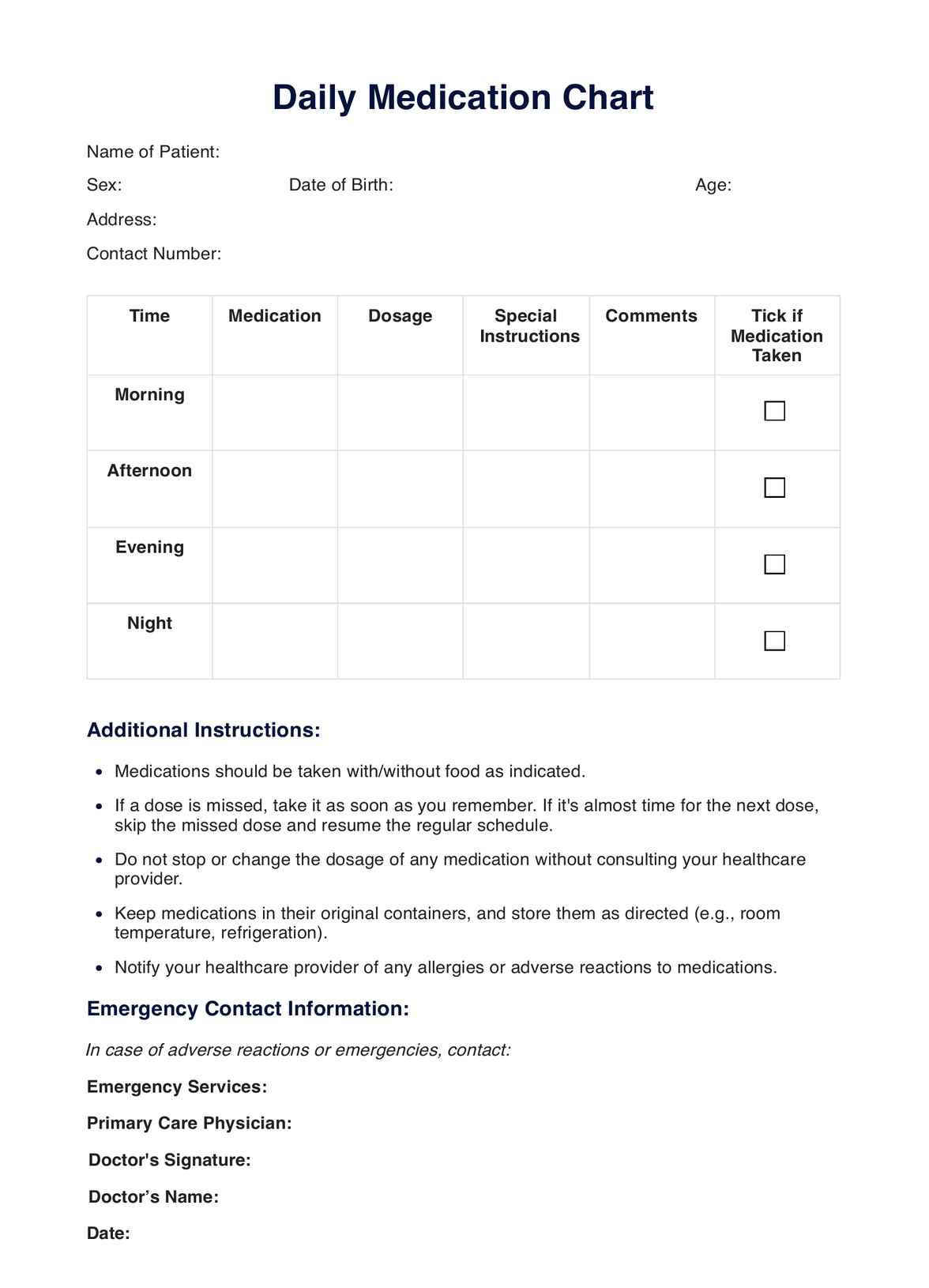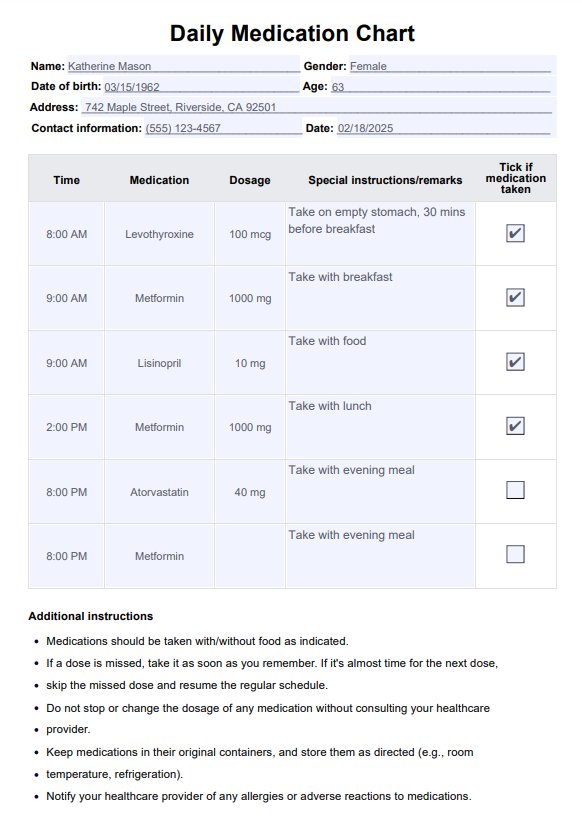
Easily track and manage your health routine for a hassle-free and healthier lifestyle. Download our Free Daily Medication Chart Template and stay organized.

By Karina Jimenea on Aug 06, 2024.
Fact Checked by RJ Gumban.


Life can get busy, right? Amidst the daily hustle and bustle, you might find yourself dealing with the additional challenge of managing your stress, especially when it comes to your daily medications.
Let’s get real—some individuals, the aging population, for instance, struggle with staying consistent with their medications. They tend to forget to take their prescribed meds, especially if they have complex medication regimens. That’s where our Daily Medication Chart Template comes in to add a touch of clarity and consistency to your day!
Ensuring you stay on top of your health should be a smooth process. Envision having a personal healthcare assistant who is organized and incredibly convenient to have by your side. You can clearly see your prescribed medications, dosages, timings, and instructions. A visual representation of your medication schedule is essential for promoting discipline and medication adherence.
With our Daily Medication Chart, you can streamline your medication process. Whether you are a doctor, a nurse, someone juggling multiple medications, or caring for a loved one on their health journey, this template simplifies the medication schedule for you, promoting overall well-being.
PDF Template Example PDF

Using our Printable Daily Medication Chart Template is a no-brainer. To reap the ultimate advantage of this health tool, here are easy-to-follow steps to get you started:
Access our printable template by clicking on the link found on this page. Save the template to your device. It's best to print it.
After downloading and printing the template, familiarize yourself with how the template works by reading the contents and instructions.
Start by filling in your name, date of birth, age, and other essential information. This chart is meant to cater to your needs, so own it.
It’s time to focus on the task at hand. List down your medications in the designated column. Don’t forget to include the timing, frequency, dosage, and other particular instructions your healthcare provider gives.
Like your typical to-do list, tick off your medications on your chart as you take them daily.
Use the comments column for observations and remarks. Make it a habit to regularly update your chart to ensure you can communicate changes observed to your healthcare provider during consultations. Doing such will ensure optimal treatment progress.
Let’s dive into when and how to reap the advantages of our Daily Medication Chart, as this proves beneficial to patients, caregivers, and healthcare providers.
There is a variety of instances to use the chart:
Monitoring your loved one’s medication schedule ensures precise dosage and aids in effective care planning.
Before your day ends, look at your Free Daily Medication Chart Template; precisely, the last column instructs you to tick it off once the medication is taken. Then, look at the results, which may come in the following forms:
The inception and use of the Daily Medication Chart stems from the need to simplify and organize medications. With the advent of technology, it transitioned into digital formats far from the handwritten ones that lacked a structure.
Numerous research has been conducted regarding the use and effectiveness of Daily Medication Charts. Here is the summary of some studies that support the importance of medication adherence and how medication charts play a role:
The narrative review encompassing 30 studies, retrieved from 846 articles, revealed significant positive outcomes, specifically in the ‘patient theme’ where the medication charts contributed to increased medication knowledge, reduced errors, and improved adherence.
Moreover, medication charts were recognized as valuable tools for enhancing communication and cooperation between healthcare providers (Dietrich et al., 2020).
A study reveals that pharmacists' daily drug reminder charts significantly enhance medication compliance among geriatric hypertensive patients at a community health care clinic. Addressing the common misunderstanding and forgetfulness in medication adherence, the study suggests that supplementing verbal instructions with a daily drug reminder chart improves compliance (Gabriel et al., 1977).
Another research supports this finding where 435 participants were tested, and for one year, they received usual care, refill reminder postcards, and illustrated daily medication schedules. The study findings show that displayed medication schedules could enhance adherence among patients with low self-efficacy, polypharmacy, or existing non-adherence, although this assertion needs validation (Kripalani et al., 2012).